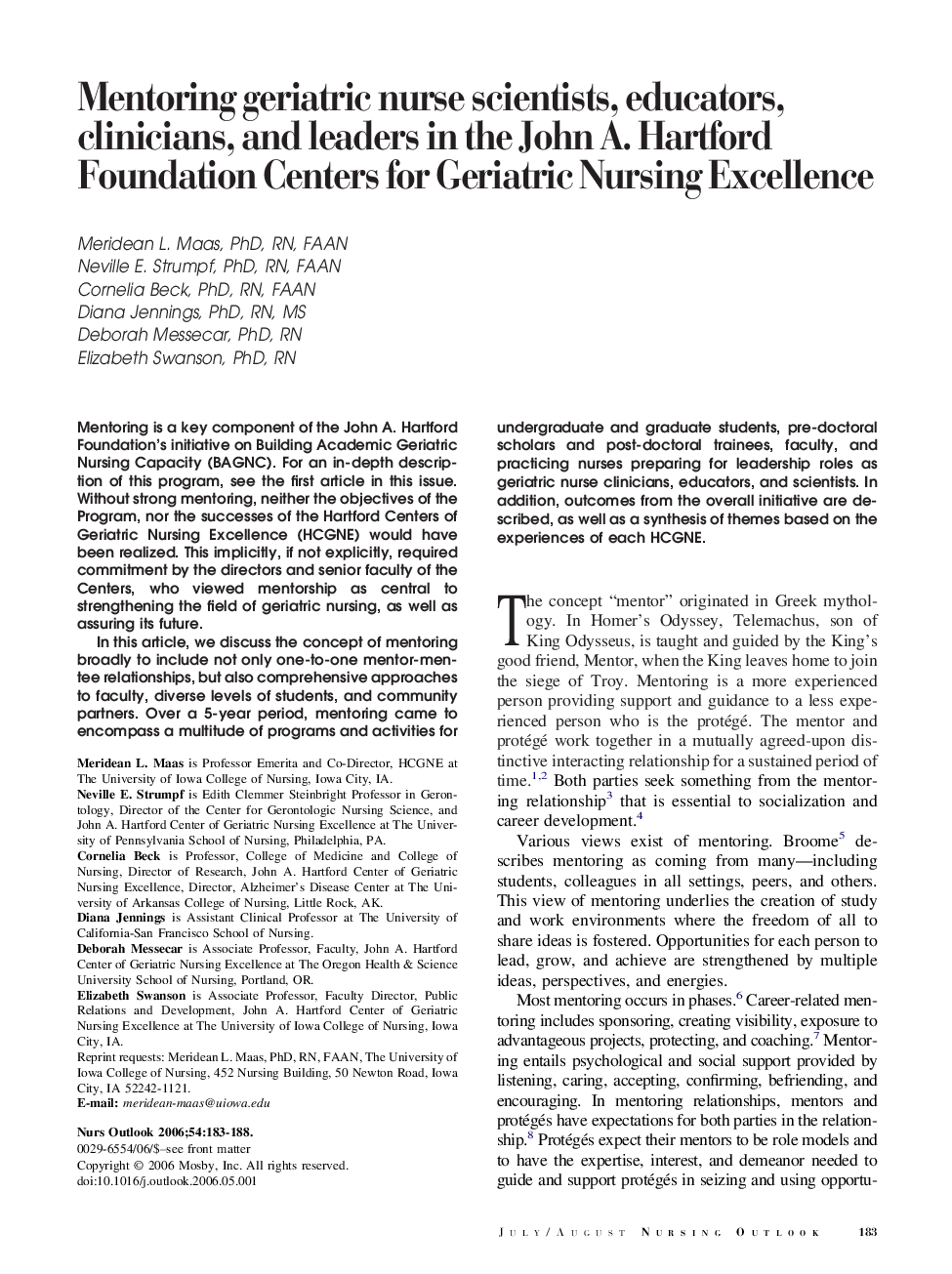| Article ID | Journal | Published Year | Pages | File Type |
|---|---|---|---|---|
| 2677335 | Nursing Outlook | 2006 | 6 Pages |
Mentoring is a key component of the John A. Hartford Foundation’s initiative on Building Academic Geriatric Nursing Capacity (BAGNC). For an in-depth description of this program, see the first article in this issue. Without strong mentoring, neither the objectives of the Program, nor the successes of the Hartford Centers of Geriatric Nursing Excellence (HCGNE) would have been realized. This implicitly, if not explicitly, required commitment by the directors and senior faculty of the Centers, who viewed mentorship as central to strengthening the field of geriatric nursing, as well as assuring its future.In this article, we discuss the concept of mentoring broadly to include not only one-to-one mentor-mentee relationships, but also comprehensive approaches to faculty, diverse levels of students, and community partners. Over a 5-year period, mentoring came to encompass a multitude of programs and activities for undergraduate and graduate students, pre-doctoral scholars and post-doctoral trainees, faculty, and practicing nurses preparing for leadership roles as geriatric nurse clinicians, educators, and scientists. In addition, outcomes from the overall initiative are described, as well as a synthesis of themes based on the experiences of each HCGNE.
